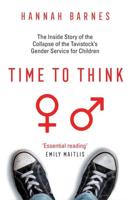Publisher's Synopsis
The Japanese people are again struggling with their nation's insularity. The Meiji Restoration and the end of the Asia-Pacific War gave way to concerted efforts to connect the country with the outside world. As the Japanese economy emerged from two decades of stagnant growth, there was wide consensus that the society was increasingly grappling with the problems shared globally, and that both its economy and internal policy debates would benefit from being more fully engaged in discourses and research activity occurring outside its borders.
This book considers the efforts of policy makers to reorient Japan to the outside world, as the nation enters the second decade of the 21st century. It discusses the strategies being pursued by Japan's policy makers: enhancing the involvement of the Japanese in global networks; improving English language skills; hiring more foreign labour; lifting the stature of tertiary education on internationally-recognised league tables; and creating favourable images of a Japanese cultured society abroad. The book considers the changing geopolitical landscape and the social backdrop against which such policies are being introduced, while also assessing the prospects that the Japanese will experience a 'third opening' any time soon. Overall, the volume provides insight into some of the critical choices likely to shape Japan's interface with the outside world and the direction in which Japanese society moves during the next decade.










